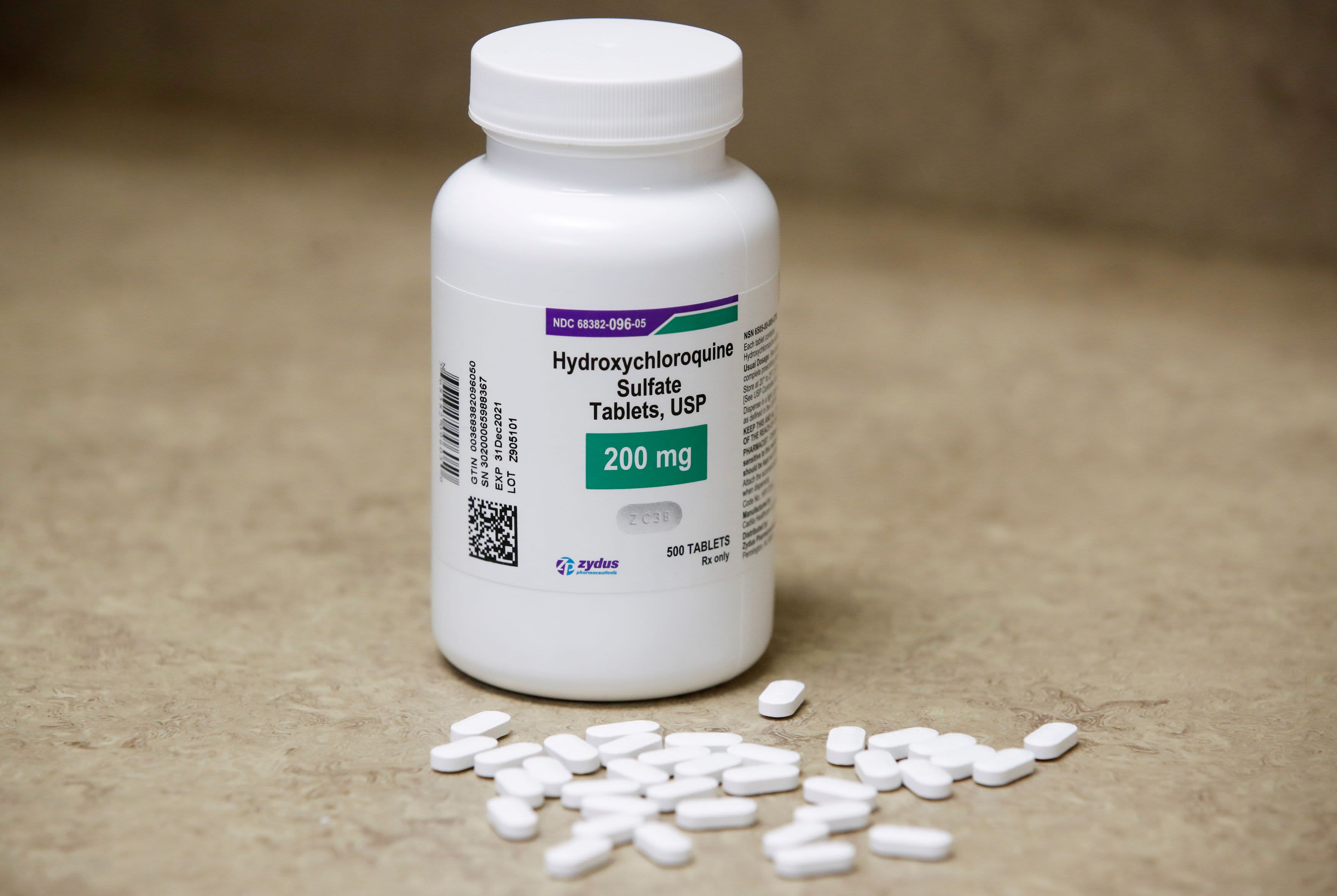The drug hydroxychloroquine, pushed by U.S. President Donald Trump and others in recent months as a possible treatment to people infected with the coronavirus disease (COVID-19), is displayed at the Rock Canyon Pharmacy in Provo, Utah, May 27, 2020.
George Frey | Reuters
The National Institutes of Health has halted its clinical trial of the anti-malaria drug hydroxychloroquine after finding that the treatment provides no benefit to COVID-19 patients.
The decision to end the trial comes after the Food and Drug Administration revoked emergency use of the drug on Monday and the World Health Organization dropped the drug from its global study on Wednesday.
“A data and safety monitoring board met late Friday and determined that while there was no harm, the study drug was very unlikely to be beneficial to hospitalized patients with COVID-19,” the NIH said in a statement on Saturday.
The FDA has also determined the drug is “unlikely to be effective in treating COVID-19″ and warned of side effects including serious heart rhythm problems.
Hydroxychloroquine is used to treat malaria and rheumatoid conditions like arthritis. The drug generated excitement earlier in the year after a few small studies suggested it could be beneficial for treating coronavirus.
However, larger studies showed the drug was not helpful and caused heart issues in some patients, and a study in the New England Journal of Medicine found hydroxychloroquine didn’t work any better than a placebo in preventing coronavirus infections.
President Donald Trump repeatedly touted the drug’s potential to combat the virus and completed a two week regimen last month. White House physician Dr. Sean Conley said that after discussing evidence for and against hydroxychloroquine with the president, they concluded “the potential benefit from treatment outweighed the relative risks.”
There are no FDA-approved drugs to treat the coronavirus, which has infected more than 8.6 million people worldwide and killed at least 460,594, according to data from Johns Hopkins University.
